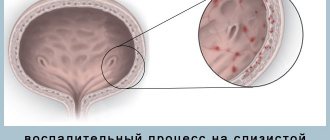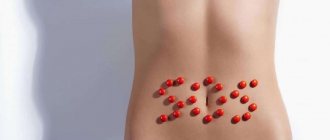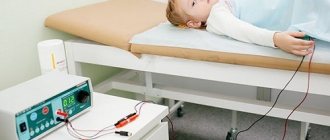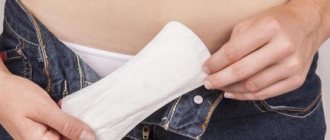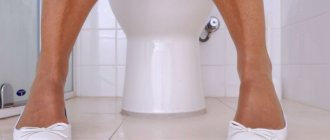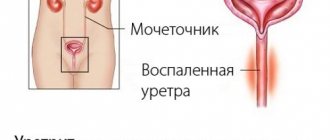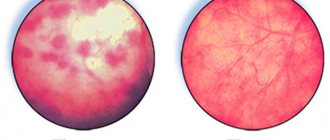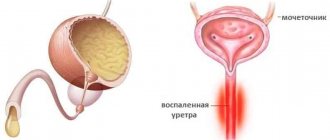Acute discomfort when passing urine, the presence of blood in it gives reason to suspect an attack of cystitis. In this case, the patient needs to consult a specialist. If this cannot be done in the near future, the person should abandon business, postpone meetings and come home. This disease requires bed rest. In addition, medications and traditional methods of therapy are needed. The article talks about how to relieve pain from cystitis.
Characteristics of the disease
The inflammatory process in the bladder gives patients discomfort. You should carefully select the means to treat the pathology. Therapy should be aimed not only at eliminating discomfort, but also at combating its cause. Otherwise, the disease becomes chronic and leads to serious complications. Inflammation of the bladder most often occurs in the fairer sex. It can occur in both adults and minors. The question of how to relieve pain from cystitis in women is very relevant, since due to the characteristics of the body they are more susceptible to the disease.
Quickly relieve the symptoms of cystitis: basic ways
Signs of an inflammatory process in the bladder appear clearly and cause a lot of inconvenience to the patient. Many people prefer not to wait until visiting a doctor, but to quickly cure cystitis at home.
However, it should be understood that self-therapy is usually aimed only at dulling symptoms, and not at eliminating the causes of the disease.
Nevertheless, this approach is justified when there are very strong inconveniences and there is an objective impossibility of going to the hospital.
How to quickly relieve the symptoms of cystitis by heating
The main “helper” in getting rid of signs of the inflammatory process is heat. It affects the blood vessels, dilating them and thereby relieving pain. For cystitis, the following procedures are indicated:
- Applying a warm heating pad to the lower abdomen and groin area. You can also use bags filled with hot sand or salt. Some people use a regular plastic bottle filled with heated water (the main requirement is that the material of the container must be dark in color).
- Taking a warm shower. The duration of such “therapy” is 15-20 minutes. If opinions differ about the bath, then taking a shower when the bladder is inflamed is not only possible, but even useful.
- "Bathing" feet. It takes 15-25 minutes to steam your feet. Various herbal decoctions (from chamomile, St. John's wort, etc.), heated milk, and plain water can be used as a “healing” liquid. It is necessary to ensure that your feet do not get cold. As soon as the liquid begins to cool, it is recommended to add a new portion at a higher temperature.
- Sitting over a hot brick. The procedure itself is simple, but it will require the construction of a special structure. You need to put several pieces of brick heated in the oven in a metal bucket, line the edge of the vessel with a thick cloth and sit on it, having first removed your underwear. You should act carefully so as not to accidentally get burned. It is recommended to sit in this way for up to 20 minutes until the brick cools down.
It is very important after completing the thermal procedure to put on woolen socks and go under the blanket. Therefore, it is best to engage in such treatment immediately before bedtime.
Heating also has contraindications, including:
- hematuria - bleeding along with urine (heat will further increase bleeding);
- period of menstruation in women;
- general severe course of the inflammatory process, accompanied by fever, weakness, and headaches.
Special mention should be made of visiting baths and saunas. Many people believe that this is how cystitis can be cured quickly. In fact, in the acute form of the disease, such visits will only worsen the patient’s condition. Going to a bathhouse or sauna is only permissible if you have chronic cystitis, and then only during the period of remission.
Cystitis: how to cure quickly and get rid of symptoms in one day
There is a way to literally remove the signs of the disease within a day. If the disease has just begun to develop, there is a chance to stop it. Required:
- Analgin (or other painkiller suitable for the person);
- a heating pad or something that replaces it;
- 1 tbsp. l. regular baking soda;
- 500 ml freshly squeezed lemon juice;
- homemade cranberry drink (juice, fruit drink, compote).
You need to devote the whole day to treatment and stay at home. Need to:
- Take a soda solution. This substance helps to change the pH level of urine, due to which microbes stop multiplying in it, and the inflammatory process stops developing. Additionally, pain disappears. To prepare the solution, pour baking soda into a glass of water (necessarily warm) and mix thoroughly. Drink the drink in small sips for 10-20 minutes.
- Relax. It is recommended to devote the next half hour to being under a warm blanket and taking a light nap.
- Take an Analgin tablet.
- Use “thermal techniques”. You should press a heating pad to your lower abdomen. It is advisable to keep it in this position for about 2 hours. In order not to have to get out of bed to constantly heat the water, it is recommended to “stock up” with an assistant among the household. But if there are contraindications for heat treatment, this step must be skipped.
- Drink cranberry drink and lemon juice diluted with water. It is recommended to stretch this point over the whole day. It is best to take drinks every 20 minutes.
One of the ways to cure cystitis quickly is to change your diet. The new menu can also be included in your “treatment day”. You need to consume as much as possible:
- fresh cranberry or lingonberry berries;
- natural diuretic products (watermelon, melons, cucumbers);
- millet porridges and soups.
It is recommended to avoid all kinds of “harmful” foods, including fried, salted, spicy, canned, smoked, and pickled foods. Carbonated lemonades and alcoholic drinks are prohibited.
Acute cystitis: quickly treated with antibiotics
The use of potent medications should be discussed with your doctor. But if there is no way to wait, it is permissible to take a risk and take the most effective antibiotic - Monural. It is effective against almost all bacteria, which is why it is sometimes prescribed even before test results are available, simply to stop the infection.
Monural is a powder that is diluted with water according to the instructions and taken either 2 hours before meals or before bed. The last option is considered preferable. It is very important to urinate before using the solution, so that the medicine can remain in the bladder for the next few hours and have the desired effect on it.
Usually the symptoms of cystitis go away the next day. If the situation is difficult, it is permissible to take the medication again after a day. The drug does not provoke dysbacteriosis and is generally considered safe. It is prescribed to nursing mothers and even pregnant women (although in these situations, consultation with a doctor is strictly required).
How to relieve the symptoms of cystitis quickly: painkillers + traditional medicine methods
To ensure the symptoms disappear as quickly as possible, you can take a painkiller, and then devote the day to actively drinking herbal teas recommended for cystitis. Suitable medications include:
- Analgin is a common pain reliever that relieves discomfort in half an hour;
- No-spa is an antispasmodic that dilates blood vessels;
- Trigan-D is a remedy for relieving intense pain attacks.
You can take another drug that the person usually prefers. Also, in the morning you should prepare one of the following drinks:
- A decoction of rosehip roots. For 1 liter of water, 0.5 cups of crushed plant is required. Boil. Take before meals at least five times a day.
- Infusion of hop cones. Pour 2 tbsp. l. plants 0.5 liters of boiling water. After 1.5 hours you can take the medicine. Drink 0.5 cups before meals.
- Chicory infusion. Prepare and take in the same way as the previous recipe.
- St. John's wort infusion. Brew 1 tbsp. l. plants in 0.5 liters of boiling water. Strain. Drink 0.25 cups before meals.
Therapy needs to be “organized” according to how you feel. If the remedy does not help, it is better to consult a specialist. After all, in fact, only a doctor can tell you how to quickly cure cystitis in a particular case. The causative agents of the inflammatory process are different - and require different approaches. Home therapy is always a risk.
Source: https://cystitis.su/bystro-snyat-simptomy-cistita-osnovnye-sposoby.html
Factors provoking pathology
What causes can cause inflammation in the bladder area? These circumstances include:
- Exposure to low temperatures.
- Lack of physical activity, the need to remain in a sitting position throughout the working day.
- Intestinal dysfunction, periodic stool retention.
- Abuse of fatty, spicy and salty foods.
- STIs, pathologies of the female reproductive system, especially chronic ailments.
- The presence of inflammation in the body.
- Poor functioning of the immune system.
- Constant fatigue, emotional overload.
- Ignoring hygiene standards (for example, not changing pads or tampons often enough on menstruation days).
- Weakened nervous system.
How to properly care for your body and keep it clean should be taught as early as childhood. This is especially true for representatives of the fairer sex. Girls need to be explained that during monthly bleeding, the pad or tampon must be changed at least twice a day.
If there is inflammation in the bladder area, the pathological process cannot be started. You should consult a specialist and complete the full course of prescribed therapy. Since the disease is accompanied by severe discomfort, you also need to know how to relieve the pain of cystitis.
What is cystitis?
The disease is manifested by inflammation of the walls of the bladder. Most often, cystitis is of an infectious nature; the causative agents can be microorganisms from opportunistic flora: staphylococci, streptococci, Proteus, E. coli, etc. Somewhat less often, inflammation can be provoked by mycoplasmas, chlamydia, trichomonas and ureaplasmas.
The disease is more common among women, due to certain anatomical features of the structure (women's urethra is wider and shorter, unlike men's, and therefore it is easier for infection to “get” to the bladder). In women of childbearing age, inflammation of this organ can develop repeatedly, thereby worsening the quality of life.
Regardless of whether cystitis is male or female, the disease has the following manifestations:
- frequent urination every 15-25 minutes;
- pain when urinating;
- burning and stinging after urination;
- pain in the lower abdomen;
- feeling of incomplete emptying;
- urinary incontinence with a strong desire to urinate.
The urine becomes cloudy and sometimes acquires a reddish tint. In some cases, there is a slight increase in temperature to 37-37.5 C 0, this may indicate the spread of infection to the kidneys.
Acute uncomplicated cystitis is one of the most common diseases in urology. In this case, only the mucous membrane of the organ is affected, without penetrating into the submucosal layer.
About 10-22% of the population suffers from chronic inflammation of the bladder walls; the wide range is due to the difference in the definition of the term among different specialists. Some doctors believe that chronic cystitis can be judged if the disease occurs more than 2 times a year.
How is pathology related to the menstrual cycle?
Exacerbation of a chronic inflammatory process or the development of an acute form is most likely during critical days. This is explained by changes in the balance of hormones in the female body. If there is discomfort when visiting the toilet, as well as a frequent desire to empty the bladder, cystitis may be suspected. Pathology is often provoked by other diseases of the reproductive system, as they promote the proliferation of bacteria. Acute inflammation often occurs in a woman suffering from candidiasis during her period. Bladder tissue is very sensitive to the effects of microorganisms.
At the initial stage, the disease may not make itself felt. An acute attack sometimes ends on the second day. However, this does not mean that a woman does not need to see a doctor. The specialist will tell the patient how to relieve pain from cystitis, prescribe effective remedies to eliminate the infection and protect the body from complications. For example, if laboratory tests show the presence of candidiasis, medications are recommended to combat the fungus. In addition, the doctor prescribes medications that promote the proliferation of beneficial bacteria.
Analgesics
Pain relief for cystitis also involves the use of non-steroidal anti-inflammatory analgesics, such as Nurofen, Ibuprofen, Diclofenac, Katerol. Such drugs relieve only mild pain symptoms associated with inflammatory processes during cystitis in the area of the urinary system. This also includes Aspirin and Analgin. In exceptional cases, this is the use of analgesics with an immediate analgesic effect Ketanov and Naiz. Let's describe some of them.
Aspirin
This analgesic is not only an anti-inflammatory agent, but also reduces body temperature, pain symptoms associated with cystitis and more. It is often used in conjunction with antispasmodic drugs, with the exception of bleeding in hemorrhagic lesions of the mucous membrane of the urethra and bladder, as it contributes to their intensification.
Analgin
Non-steroidal anti-inflammatory form of the drug. Kills germs, relieves pain, lowers body temperature, has a weak analgesic effect, therefore it is recommended for use in the initial manifestations of cystitis. It has contraindications for increased vascular permeability during the course of hemorrhagic syndrome of the mucous membrane of the urinary organs.
Potent analgesics
Preparations Ketanov and Nise. Mostly prescribed in blister packs. Prescribed in the presence of severe painful ailments in women with inflammation of the mucous membranes. They can be used equally effectively at any stage of developing cystitis.
Main signs of pathology
Manifestations of cystitis are the same in women, representatives of the stronger sex and minor patients. The main symptom of the disease is discomfort in the lower part of the peritoneum, which is acute. The patient experiences discomfort both in the genital area and in the anus. This is explained by contractile muscle movements, difficulty in excreting urine, swelling of organ tissues and the formation of erosions on their surface. Inflammation can be either acute or chronic. In the first case, its symptoms are pronounced. They include:
- Severe discomfort when visiting the toilet, burning sensation, stinging.
- Presence of blood fragments in the urine.
- Pain in the lumbar region, in the lower part of the peritoneum.
- Muscle aches, feeling of exhaustion.
- Temperature increase.
- Frequent need to go to the toilet.
Since the inflammatory process is accompanied by severe discomfort, the question of how to relieve pain from cystitis is relevant. In addition, timely use of medications and the use of drugs made from medicinal plants helps to avoid complications of the disease.
How can you relieve pain with cystitis?
A characteristic symptom of cystitis is pain; the pathology is most often diagnosed in women.
It will not be possible to relieve the pain of cystitis with the usual means, for example Analgin or Ibuprofen, because the cause of discomfort lies in inflammation of the walls of the bladder, which is provoked by bacteria.
A characteristic symptom of cystitis is pain; the pathology is most often diagnosed in women.
What kind of pain can there be with cystitis?
The nature and intensity of pain during cystitis depends on the degree of damage to the bladder and the person’s pain threshold. Most people have pain in the lower abdomen.
A person experiences severe pain (burning, stinging) during and after urination. Sometimes the pain can be described as burning.
Acute pain is observed in the first days of the disease, then it weakens, gradually turning into moderate pain.
Emergency help
First aid for a person with cystitis is relief from pain. To quickly relieve inflammation and pain, you need to take a painkiller. This can be any antispasmodic drug (Spazmalgon, No-Shpa, Baralgin). Valerian will help as a sedative.
https://www.youtube.com/watch?v=NCjmNsrqrlI
You need to take a lying position, you can put a warm heating pad on the pubic bone - this will reduce cramps, but heat exposure should be excluded during pregnancy and if there is blood in the urine.
The lumbar region should not be heated. This procedure will not relieve inflammation and can lead to complications.
Drinking plenty of fluids will improve the patient's condition and help relieve bladder inflammation. You need to drink at least 2 liters of liquid per day.
It is better if it is berry fruit drinks (cranberry, lingonberry) and herbal teas (chamomile).
You should immediately call emergency medical help if a person experiences an increase in body temperature to +39°C, the inability to empty the bladder, or blood in the urine.
Drug pain relief
Coping with cystitis and completely relieving the pain syndrome is possible only with competent drug therapy. Medicines and their dosage should be prescribed by the attending physician based on the examination and laboratory tests.
Painkillers
To get rid of pain and relieve inflammation, you need to take the drugs Monural, Tsiprolet, Nolitsin.
Antispasmodics
Antibacterial drugs are quite effective, but in order to relieve pain at the initial stage of the pathology, you need to take antispasmodic drugs:
- Trigan-D;
- No-Shpa (you need to take 2 tablets at a time).
Rectal suppositories with Papaverine and Betiol suppositories containing belladonna extract will also help relieve inflammation.
To relieve pain at the initial stage of pathology, Betiol rectal suppositories.
How to relieve the symptoms of cystitis at home
When a person experiences symptoms of cystitis, he needs qualified medical care. But if visiting a doctor is not possible, you can try to relieve the symptoms at home. In this case, traditional medicine will come to the rescue.
Folk remedies
A popular traditional medicine to alleviate the condition of a patient with cystitis is ordinary baking soda. Cooking recipe: 1 tbsp. l. Baking soda must be diluted in 200 ml of warm water and drunk. This will protect the body from the penetration of infectious agents and ease the course of the disease.
Baths
An effective and proven remedy that helps relieve inflammation are baths prepared on the basis of medicinal plants (horsetail, chamomile, pine needles), furatsilin or potassium permanganate. Sitz baths are the most convenient. For the procedure you will need:
- large pelvis;
- clean underwear;
- dry towel;
- warm socks to put on immediately after taking a bath.
An effective and proven remedy that helps relieve inflammation are baths prepared using medicinal plants.
You must first carry out hygiene procedures.
You need to brew the medicine in a basin. When it is infused, add a sufficient amount of warm water into the basin; its temperature should not exceed +45ºС. It is necessary to sit in the basin in such a way that the water reaches the level of the navel. Cover yourself with a large dry towel on top. The duration of the procedure should not be less than 20 minutes. The course of treatment is 8-10 days.
Medicinal herbs
When treating cystitis, it is recommended to make decoctions, baths and tinctures from the following herbs that help relieve the inflammatory process:
- cowberry;
- calendula;
- St. John's wort;
- chamomile flowers;
- horsetail;
- St. John's wort;
- bearberry;
- juniper;
- yarrow;
- Birch buds;
- aloe;
- raspberries;
- rose hip;
- Linden;
- parsley and others.
When treating cystitis, it is recommended to make decoctions of herbs that are very beneficial for the body.
All herbs can be divided into categories:
- antibacterial (natural antibiotics) – chamomile, juniper, St. John's wort;
- anti-inflammatory herbs that have an enveloping effect - cranberry, chamomile, lingonberry;
- herbal plants with diuretic, analgesic and immunomodulatory effects - horsetail, knotweed.
These herbs will help relieve inflammation and prevent the development of complications. Before starting treatment with medicinal herbs, you should consult a doctor.
Decoctions
In order to quickly relieve pain and reduce inflammation in the bladder, complex therapy is necessary, which includes treatment with decoctions prepared from medicinal herbs:
- chamomile decoction helps relieve pain and burning, has an anti-inflammatory effect (3 tablespoons of dried chamomile flowers should be poured into 1 liter of water, and kept on low heat for 55-60 minutes, strain);
- Calendula decoction has beneficial properties and helps relieve symptoms of the disease (5 tablespoons of calendula flowers should be poured into 1 liter of hot water and put on low heat for 30 minutes);
- A decoction of parsley leaves helps relieve pain (pour 2 tablespoons of chopped herb into 1 glass of hot water and boil for 15 minutes).
Chamomile decoction helps relieve pain and burning and has an anti-inflammatory effect.
A decoction of chamomile and calendula should be drunk 0.5 cups every hour. The course of treatment varies from 3 to 5 days (during this period, the drugs will help relieve the inflammatory process).
Parsley decoction is taken in small portions during the first half of the day. In the evening you need to prepare a fresh decoction and drink it before bed. The course of treatment with parsley is 1-2 days.
Use with caution as side effects may occur.
Physiotherapy for pain relief
Physiotherapy performed at home will help relieve inflammation in the bladder.
The patient is recommended to make foot baths from medicinal decoctions.
Keep your feet in the basin for 10-15 minutes, put on socks after the procedure. Physiotherapy helps reduce discomfort and alleviate the condition.
What can be used during pregnancy
The disease often occurs during pregnancy. Antibacterial, antifungal and antiviral drugs may be prescribed to help relieve inflammation.
Only a doctor can prescribe treatment and doses that do not harm the fetus. It is strictly forbidden to take sulfonamides and tetracyclines.
Chamomile decoction for drinking, bathing and douching helps a lot (the course of treatment should not exceed 2 months).
In case of acute cystitis, paraffin compresses help relieve inflammation and reduce pain. To do this, paraffin must be heated to a temperature of +50°C, applied to the lower back, covered with a towel and a warm blanket. The procedure time is 30 minutes.
Only a doctor can prescribe treatment and doses that do not harm the fetus.
What products are suitable for children
In the chronic form and exacerbation of the disease in children, drug treatment is prescribed, the purpose of which is to relieve pain and inflammation. Only the attending physician has the right to do this. You can use Viferon antiviral rectal suppositories on your own.
The only way to quickly relieve pain is to give the child painkillers; their dosage must be chosen in accordance with the instructions included with the medicine. Additionally, the sick child is given plenty of fluids to drink, which relieves inflammation of the bladder:
- for children under 1 year of age, the daily fluid intake is 0.5 l;
- under 5 years – 1 l;
- over 5 years – at least 2 liters.
Drinks must be warm. It is also recommended to give drinks at night.
In order to relieve inflammation, a sick child must adhere to a diet. Salty, smoked, fried, and chocolate should be excluded from the diet. During therapy, it is necessary to ensure that the child does not become hypothermic. If a child suffers from a chronic form of the disease, it is advisable to receive treatment in a hospital.
[morkovin_vg video=”PeIhZ2l6M00"]
Source: https://cistit.online/lechenye/pervaya-pomoshh/oblegchit-bol
Consequences of pathology
Discomfort in the lumbar region that does not go away over a long period of time may indicate dysfunction of the gastrointestinal tract or kidneys. If such a symptom occurs, you must contact a medical facility. Self-use of antibiotics or folk remedies as therapy further worsens the patient’s condition. The infectious process spreads to the kidneys. Severe dysfunction of these organs can lead to death. With an advanced form of inflammation in the urinary system, a person needs medical care in a hospital setting. If severe discomfort occurs, call an ambulance.
General rules for the patient
If signs of cystitis appear, the following recommendations will help relieve pain at home:
- Maintaining bed rest. You should cover yourself with a warm down blanket and put on warm clothes.
- If there are blood clots in the urine, you can take hot foot baths.
- Place a heating pad on the lower extremities.
- You can also take a bath. It is recommended to place an infusion of hawthorn or valerian in it. The water temperature should not be higher than forty degrees. However, when talking about how to relieve pain from cystitis in women, it should be noted that this method cannot be used during menstruation or in the presence of ailments of the reproductive system. Any heating during bleeding is also contraindicated.
This device can be replaced with a plastic bottle of warm water. It must be kept on your feet until it cools down.
Sometimes menstruation helps to improve the patient's condition. Discharge helps remove germs from the body. However, this does not mean that the attack will not recur. Even if the woman feels stable, she needs to see a doctor, otherwise the consequences of the infection may affect the functioning of the kidneys.
Quick help for cystitis at home
Inflammation of the bladder - cystitis - can begin at the most unexpected moment. First aid for cystitis at home is to alleviate a woman’s condition by relieving pain and other unpleasant symptoms. What traditional medicine and medications should be used to provide first aid for inflammation?
Symptoms of cystitis in women
The first signs of cystitis in the female half of the population are:
- frequent scanty urination, accompanied by pain and discomfort in the lower abdomen;
- increase in body temperature to 37 degrees and above;
- Strong headache;
- cloudiness of urine and change in color (even brown);
- the appearance of blood in the urine.
In young children, bladder inflammation is difficult to identify, since an infant who cannot speak will not be able to tell where and what hurts. Symptoms of cystitis can only be accompanied by whims and incessant crying of the baby.
It’s easier with older children, but when unpleasant symptoms appear, children will not be able to explain the nature and course of the painful symptoms.
Only with a random urine test can a sluggish or acute form of cystitis be detected.
General treatment recommendations
It is necessary to avoid foods that irritate the mucous membrane of the bladder walls.
Treatment for bladder inflammation is selected individually for each person, taking into account the characteristics of his body and the presence of chronic diseases.
When carrying out therapy, first of all, the source of infection should be eliminated, and then the restorative work of the genitourinary and other affected organs should begin. The course of treatment for cystitis includes:
- Carrying out etiotropic therapy (elimination of the cause of the disease).
- Taking medications that relieve inflammation and eliminate severe pain.
- Relief from problems with frequent or arbitrary urination.
- Temporary abstinence from sex and adequate genital hygiene.
- Restoring water balance in the body.
- Following a diet means avoiding foods that irritate the mucous membrane of the bladder walls.
How to alleviate the condition?
First aid is required when it is not possible to visit a doctor or call an ambulance. The patient's condition can be alleviated by drinking large amounts of fluid.
The liquid provokes urination, and therefore the removal of harmful bacteria from the body.
This method with water will have a positive effect on the condition of the diseased bladder - it will alleviate the condition and improve well-being.
An ordinary heating pad with warm water applied to the lower abdomen will relieve the symptoms of cystitis and reduce pain. It is prohibited to take hot baths during an exacerbation of the disease, so as not to provoke the ingestion of microbes and inflammation of the kidneys. If first aid methods do not help, it is recommended not to delay visiting a doctor.
Soda solution
Baking soda is useful for relieving the patient's condition.
It is possible to relieve inflammation of the bladder for a long time only with the help of medications. When there are no medications at hand, and the pain is overwhelming, it is possible to eliminate the discomfort and pain associated with cystitis, but only for a short period of time.
At home, you always have baking soda on hand, which is useful to alleviate the patient’s condition. To prepare a soda solution you need to take: 1 tbsp. l. soda, a glass of warm boiled water. Dilute baking soda in water and drink the resulting solution.
This remedy will relieve cystitis and become a barrier to the further spread of infection.
Chamomile decoction
The medicinal plant, chamomile, has many beneficial properties for acute or chronic cystitis. A decoction of the flowers of the plant improves the general condition, eliminates burning and pain due to cystitis, and has a soothing effect on the inflamed bladder.
To prepare chamomile infusion you will need 3 tbsp. l. dry inflorescences, 1 liter of boiling water. Pour the herb into a container, add boiling water and simmer over low heat for 50–60 minutes. Then set aside to infuse for another 1 hour, strain and drink half a glass every hour throughout the day.
The course of treatment will be from 3 to 5 days.
Calendula decoction
Preparing a decoction of calendula flowers is considered an equally effective remedy in the fight against cystitis. To do it this way: pour 5 tbsp into a container. l. calendula flowers, pour 1 liter of boiling water and leave on the stove.
After 30 minutes, remove the broth from the stove, strain and take half a glass every 60 minutes. Store the product in the refrigerator, otherwise it will lose its beneficial properties. The treatment course will be 3 days.
Medicinal plant - aloe
Aloe stimulates the functioning of the urethral organs.
Aloe is a fairly common medicinal plant, used for various ailments and as a preventive remedy in alternative medicine.
To relieve pain from cystitis (pain relief), a decoction of the leaves of the plant is used. This remedy stimulates the functioning of the urethral organs, eliminates the symptoms of cystitis in a short time and prevents the development of infection.
Recipe for preparing a decoction for 1 day:
- Take 3 aloe leaves, 1 tbsp. l. honey and 1 liter of water.
- Twist the leaves through a meat grinder or chop them finely with a knife.
- Place the mixture in a saucepan and place over low heat. Add the remaining ingredients, mix everything and wait for it to boil.
- After boiling, count 30 minutes and remove the mixture from the stove.
- Strain the resulting mixture, pour into a jar and drink half a glass every 60 minutes. The course of treatment will be no more than 5 days.
Parsley decoction
Preparation of a decoction of parsley leaves is as follows: take 2 tbsp. l. chopped greens, pour into a saucepan and add 250 ml of cool water, boil the broth for 15 minutes, then remove from the stove and leave for 40 minutes. Strain and drink little by little during the first half of the day. Before evening, prepare a fresh decoction and drink before going to bed.
Home physiotherapy
Physiotherapy for cystitis is thermal procedures performed at home:
- Foot baths, which allow you to fall asleep faster. Pour warm water into a basin and lower your feet for 10 minutes. Take out and put on warm socks. The procedure is carried out immediately before bedtime.
- Sitz baths. Add decoctions of medicinal plants (chamomile, bearberry, calamus root) to warm water and sit for 10-15 minutes until the water cools completely.
Medicines for cystitis
Self-administration of medications is not recommended.
Without prior consultation with a doctor, self-administration of medications is not recommended.
To relieve an attack of cystitis in the form of cramps and spasms, drugs such as Drotaverine and Spazmolgon are used. Aspirin tablets will help get rid of severe headaches.
If symptoms worsen and do not go away within 2-3 days, you can start taking the antimicrobial drugs Furagin or Levomycetin. Follow their dosage strictly according to the instructions.
Treatment of acute cystitis in children is similar to treatment in adults. The doctor selects the necessary medications (painkillers and antimicrobial drugs), sets the required dosage depending on the child’s body weight. Prescribes medicinal drinks: cranberry juice, decoction of lingonberry leaves, chamomile tea.
Cystitis with blood - first aid at home
If a woman finds blood in her urine, this is not a reason to sound the alarm, but a signal that requires increased attention.
When the appearance of blood in the urine is not isolated and there are the first signs indicating hemorrhagic cystitis, first aid should be provided and do not hesitate to call a doctor. The patient will not get rid of the problem on her own.
Quick help for hemorrhagic cystitis is to take a pain reliever and immediately call an ambulance.
In what cases is an ambulance needed?
Signs of illness that should not be ignored:
- inability to reduce elevated body temperature;
- blood impurities in each portion of urine;
- inability to have a bowel movement;
- severe, sharp pain in the lower abdomen.
Acute and hemorrhagic cystitis require an urgent call to the ambulance and treatment in a hospital. This is especially true for pregnant women and children. Timely access to a medical facility will help prevent the development of complications, get rid of suffering, and maintain health and life.
Source: https://etopochki.ru/cistit/narodnye-sredstva/pervaya-pomoshh-pri-tsistite-v-domashnih-usloviyah.html
Medicines to relieve discomfort
What to drink if you have cystitis to relieve pain? Drugs that relieve discomfort include:
- "Aspirin".
- "Ketanov."
- "Nurofen".
- "Analgin."
- "Paracetamol".
- "No-shpa."
- "Baralgin."
- "Trigan-D".
Despite the fact that tablets can be purchased at any pharmacy without a prescription, you should consult a specialist before using them. The doctor selects the correct amount of medicine. For minors, a smaller dose is needed than for adults. In addition, any remedy has features and contraindications.
Usually, along with analgesics, doctors prescribe drugs to combat fungi and bacteria. These include:
- "Monural".
- "Nolitsin."
- "Ketoconazole".
- "Cyforal".
If an attack of cystitis occurs, how to relieve the pain? For these purposes, not only analgesics are used, but also herbal remedies. These include, for example, “Canephron”, “Cyston”. Such medications can be purchased at a regular pharmacy. Other remedies of this kind are discussed in the next chapter.
Anti-inflammatory drugs
The most common anti-inflammatory drug for cystitis is Ibuprofen. This remedy is good because it has a complex effect - anti-inflammatory, analgesic and antipyretic.
The drug effectively combats the listed problems, but has quite a few contraindications and side effects. Therefore, Ibuprofen is prescribed in small doses and for a very short time.
Ibuprofen is prescribed with special caution to older people. If there are severe pathologies of the kidneys and liver, then the use of this remedy is contraindicated!
A similar drug, Nurofen, produced in the UK, is also used. The difference between these two drugs is the quality of raw materials, manufacturing technology and price. It is produced in tablets and capsules. The latter act faster than tablets, since the active ingredients are in a liquid state.
When treating cystitis in pregnant women, all of the above anti-inflammatory drugs are not used.
Traditional methods of therapy
To relieve the pain of cystitis at home, you need to use remedies based on medicinal plants, for example:
Decoctions stop the growth of bacteria and prevent the spread of infection.
Drink
Significant help at home when acute cystitis begins is provided by timely excretion of urine. A sufficient amount of fluid consumed helps to flush the bladder and incubate pathogenic agents from the body of women along with their waste products. Drinking should be plentiful, but correct.
An attack of cystitis does not tolerate alcoholic, caffeinated, carbonated drinks, strong brewed tea, kvass, or brines. Plain tap water is not the best option for women.
Experts recommend increasing the effectiveness of the drinking regime:
- non-carbonated mineral water with a slightly alkaline composition;
- vegetable and fruit juices, with the exception of tomato and lemon;
- cranberry and lingonberry fruit drinks;
- decoctions, infusions from plant materials;
- dried fruit compotes;
- weakly brewed green tea.
The best help for an inflamed bladder is to generally drink about 2 - 2.5 liters of healthy fluid throughout the day. The volume depends on individual characteristics, the calculation is made in the direction of increasing the usual rate by 50%. Sugar and its substitutes are not used when preparing drinks. Packaged store-bought juices are not recommended due to their significant preservative content.
Patient nutritional features
Any form of inflammatory process requires adherence to the correct diet. One of the answers to the question of how to relieve the pain of cystitis is to consume foods and drinks that promote intense urine flow. The diet should last about 7 days. She is quite strict. Thanks to this diet, bacteria are removed from the body, and the person feels better.
General diet rules include:
- Limiting salty foods.
- Refusal of spices.
- A minimum of products containing proteins and lipids.
- Exclusion of sweet foods and smoked foods.
- Refusal of foods that cause stool retention.
- Limiting fried foods and canned food.
For dairy dishes, only a small amount of low-fat yogurt or cottage cheese and unsalted cheese are allowed. The patient is recommended boiled cereals, bran, salads with olive oil, and pine nuts. Fresh vegetables are useful. These are, for example, cucumbers, spinach, cabbage, pumpkin, carrots, zucchini. Pomegranates, pears, and watermelons are also recommended.
Lean fish and meat are allowed as protein foods. These products should be stewed and steamed.
Fluid intake
If signs of cystitis appear, how to relieve the pain at home? To do this you need to drink a lot.
However, not every liquid is suitable for the patient. Coffee, alcohol-containing products and lemonade are prohibited. Still water is allowed. Decoctions of lingonberry leaves, corn silk, and green tea are useful. You can add honey to drinks. Compotes, juices without granulated sugar, and low-fat kefir are recommended. Despite the fact that visiting the toilet causes discomfort to a person, it is impossible to limit fluid intake. It helps remove microorganisms from the bladder and improves well-being.
Ways to prevent pathology
Knowing how to quickly relieve pain from cystitis, you must also have an idea of preventive measures that will prevent unpleasant symptoms from returning again. To avoid recurrence of the disease, patients are advised to:
- Maintain hygiene standards. Washing and drying the genitals should be done from front to back.
- Girls who take birth control pills are at greater risk of getting sick. You should not use such tools unnecessarily.
- It is important to protect yourself from the cold.
- You should not wear synthetics or tight-fitting underwear.
- Sometimes cystitis occurs against the background of gynecological ailments. How to relieve pain at home quickly with medications?
It is better to discuss this issue with your doctor.
